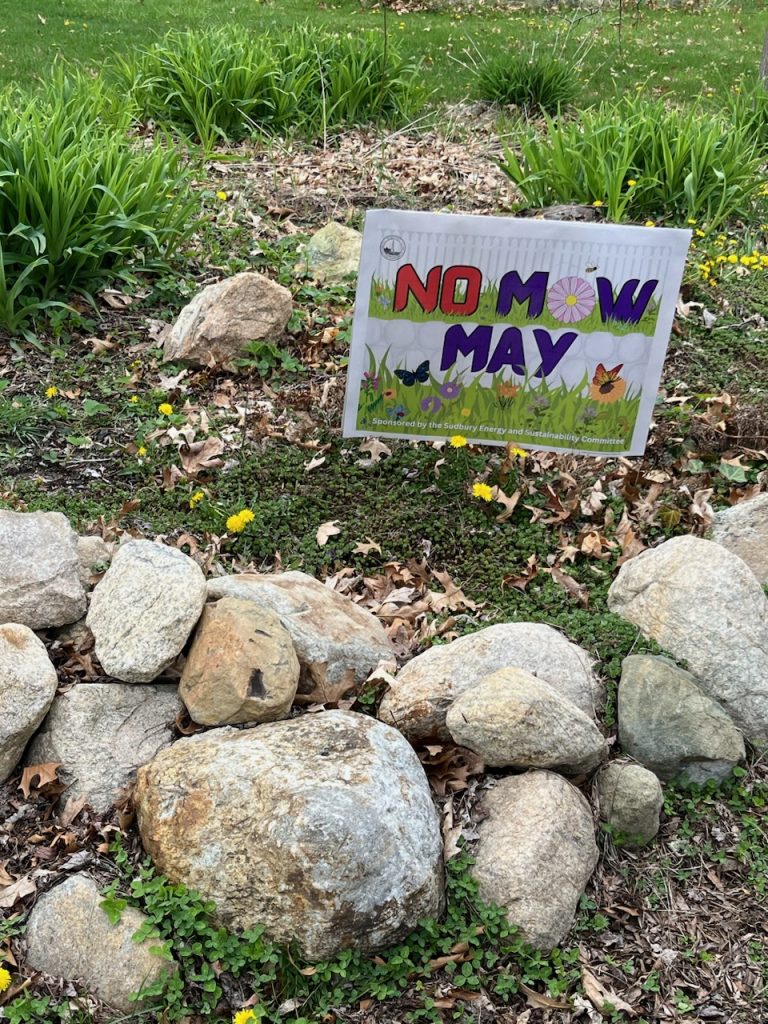Protect Our Pollinators with No Mow May
Many of our pollinator species have been on the decline due to habitat loss, disease, parasites, climate change, and environmental contamination. The Energy and Sustainability Committee is launching a new effort, No Mow May, to HELP PROTECT SUDBURY’S POLLINATORS.
No Mow May
As native vegetation is replaced by roadways, manicured lawns, non-native gardens, and impervious surfaces, pollinators lose the food and nesting sites that are necessary for their survival. You can help protect our native pollinators by participating in No Mow May! We are encouraging Sudbury residents to not mow their lawns until the month of May ends to help protect our pollinators, their food sources, and their habitats.
Free Yard Signs Available
The Energy and Sustainability Committee is giving out free eco-friendly and biodegradable “No Mow May” yard signs to recognize our pollinator-friendly households. You can get your free sign by stopping by the Facilities Department at 275 Old Lancaster Road, or by contacting Dani Marini-King, Sudbury’s new Sustainability Coordinator, at marinid@sudbury.ma.us. When you pick up your free sign, you will also have the option to add your household to our “No Mow May” map that will display these pollinator-friendly zones across Town. To be notified of this map and of other energy and sustainability projects, initiatives, and tips, please consider signing up for our newsletter. All you need to do is provide your name and email address to be added to our sustainability list.
WATCH WBZ-TV News Coverage of No Mow May:
About Pollinators
A pollinator is any animal or insect that helps carry pollen from the male part of the flower (the stamen) to the female part of the same or another flower (the stigma). The movement of pollen must occur for the plant to become fertilized and produce fruits, seeds, and young plants. Some pollinators that you may be familiar with include bees, wasps, moths, butterflies, birds, and bats. These insects and animals are essential components of our food system as they help to pollinate crops which are necessary for our survival.
A number of pollinator species hibernate underground in the winter, and don’t wake up until day and evening temperatures are consistently above 50 degrees. If you mow too early, you could wake up these pollinators before they are ready and destroy their food sources before they have a chance to feed and refuel from hibernation. You can make a difference! Take a break from yard work and join “No Mow May” to help save our pollinators.

